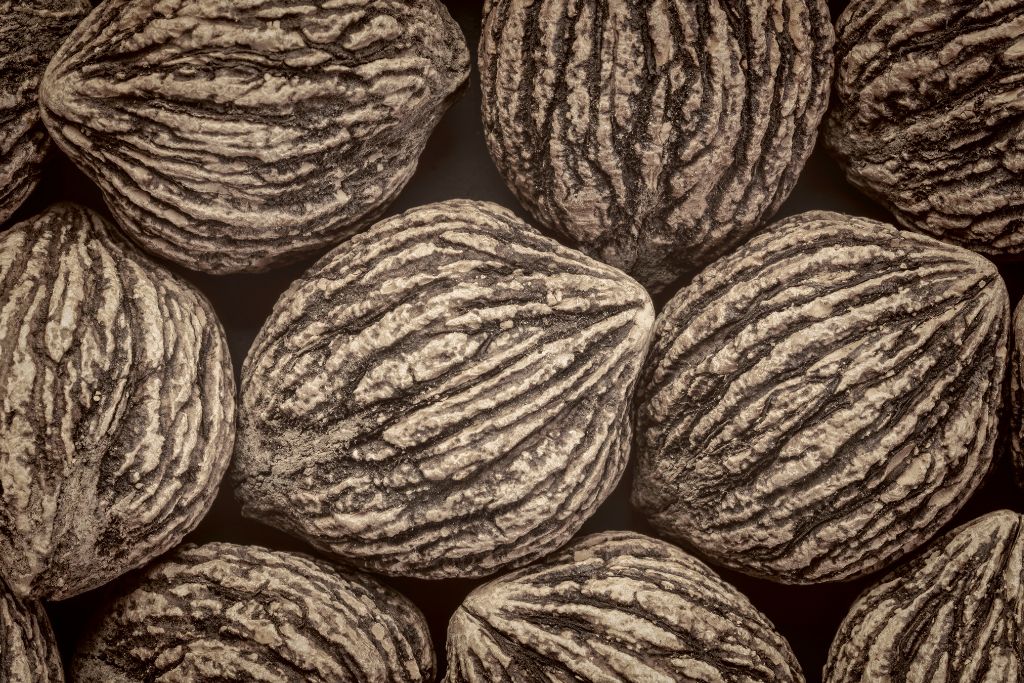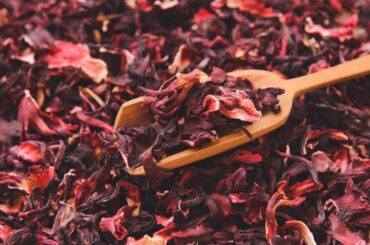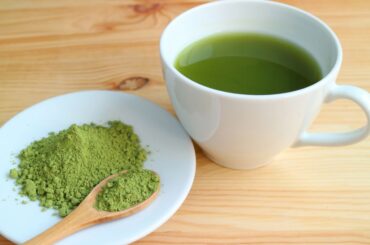Curious about adding a unique twist to your tea routine? Have you ever wondered about the wonders of black walnut tea? Read on to discover the step-by-step guide on how to create this delightful black walnut tea recipe.
Black walnuts, often overlooked in tea, have a distinct flavor and potential health advantages that make them a hidden gem. This guide is tailored for those seeking a flavorful departure from conventional teas and a potential health boost.
If you appreciate the finer nuances of taste and are open to exploring new herbal infusions, this article is crafted just for you. Whether you’re a tea lover or trying to expand your palette, try black walnut tea’s strong and earthy flavors. Get ready to elevate your tea experience and embrace the warmth and richness of this unique infusion.
What is Black Walnut Tea?

In Native American communities, black walnut tea is known for its rich flavor and unique characteristics. This Eastern North American tea is known for its flavor and health advantages. The Appalachian Mountains are known for loving and brewing this tea.
Black walnut tea, derived from the leaves of the black walnut tree, offers a robust and slightly earthy flavor profile. The leaves are carefully harvested, dried, and then steeped to create a tea that boasts a warm, comforting aroma. Its delicious taste and potential health benefits make this tea a popular choice.
To prepare black walnut tea, one typically uses dried black walnut leaves, allowing them to infuse in hot water for a few minutes. The resulting brew showcases a deep amber hue, capturing the essence of the black walnut tree. Some may choose to enhance the experience with a touch of honey or a slice of lemon.
Beyond its flavorful appeal, black walnut leaf tea is believed by some to offer various health benefits. Enthusiasts say this tea has antioxidant and anti-inflammatory effects, making it a tasty and healthy choice. Each drink honors a generational legacy and connects you to Appalachia’s natural beauty.
What Does Black Walnut Tea Taste Like?
Black walnut tea combines the earthy flavor of black tea with a delicate, nutty undertone. Black walnut adds depth to the coffee with a warm, bitter taste like toasted nuts. The tea unfolds a rich, full-bodied experience on the palate, with hints of a woody, almost caramel-like sweetness.
What is Black Walnut Tea Good for?
Rich in antioxidants, it may support your immune system and help combat inflammation. Some enthusiasts believe it could aid in digestion, relieving issues like bloating and gas. The tea is also thought to have antifungal properties, potentially assisting in maintaining a healthy balance of gut flora.
Black Walnut Tea Ingredients
Let’s explore the essential ingredients that make it a true indulgence:
1. Black Walnut Leaves
The earthy flavor and health benefits of black walnut leaves are in this tea. These leaves, which constitute the tea’s base, add rich flavor to the infusion.
2. Water
Water, the pure canvas for our concoction, serves as the medium to extract the essence of black walnut leaves. The quality of water can significantly influence the final taste, so consider using filtered or spring water for the best results.
3. Sweetener (Optional)
To cater to personal preferences, a sweetener, such as honey or sugar, can be added to the tea. Sweetness lets you customize the flavor profile without sacrificing the black walnut infusion’s essence.
4. Lemon (Optional)
For a citrusy twist, consider adding a slice of lemon to your black walnut tea. This optional addition adds brightness and refreshment without overpowering the black walnut leaves’ nuttiness.
5. Mint Leaves (Optional)
For an herbal touch, mint leaves can be a delightful addition to your black walnut tea. This ingredient imparts a subtle freshness, creating a harmonious balance with the earthy tones of the black walnut leaves.
How to Prepare Black Walnut Tea
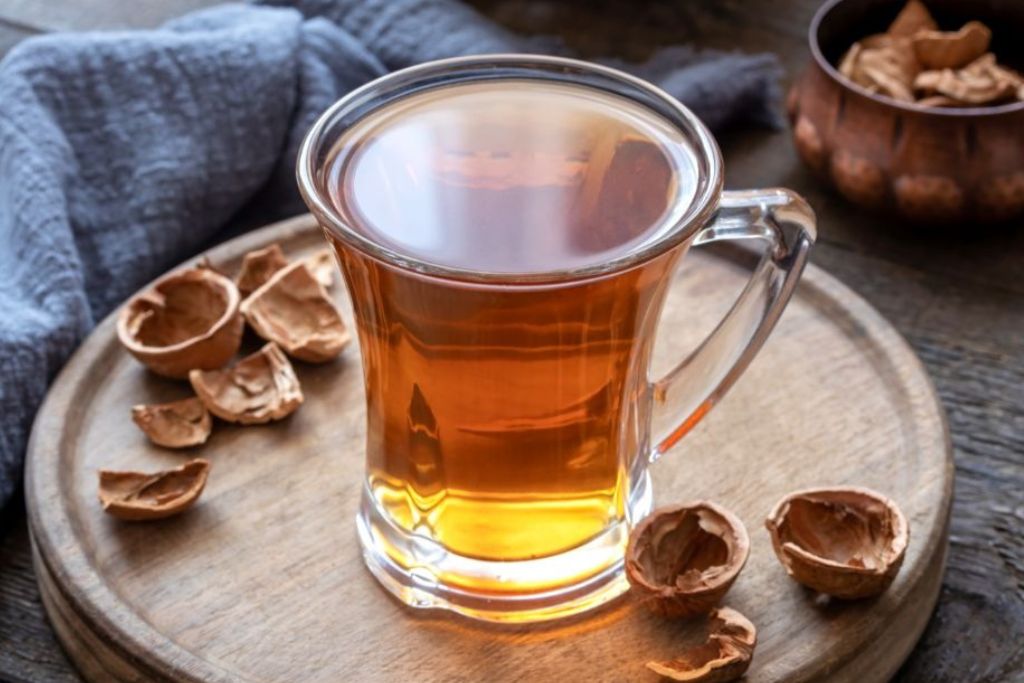
Incorporating black walnut tea into your routine can be a delightful and healthful experience. Start by enjoying this tea’s rich flavors and many benefits with a simple preparation. Let’s explore how to infuse the goodness of black walnuts into your daily tea ritual.
1. Gather Your Ingredients
Prepare for the tea-making process by assembling your ingredients. You’ll need black walnut tea leaves and fresh water. Ensure that your tea leaves are of high quality for the best flavor.
2. Measure the Tea Leaves
Using a teaspoon, measure the desired amount of black walnut tea leaves. Starting with one teaspoon per cup of water is typical. Adjust the amount for a stronger or softer taste.
3. Boil Fresh Water
In a kettle or pot, bring fresh water to a rolling boil. The ideal brewing temperature for black walnut tea is around 185 to 194°F (85 to 90℃). This temperature allows the flavors to infuse correctly without compromising the taste.
4. Pour Hot Water Over Tea Leaves
Place the measured tea leaves in a teapot or tea infuser. Carefully pour the hot water over the leaves. This step initiates the brewing process, unlocking the rich essence of black walnut tea.
5. Let It Steep
Steep the tea for 3 to 5 minutes. This timeframe cultivates the optimal flavor balance. Steeping for too long may result in a bitter taste, so be mindful of the duration.
6. Strain the Tea
After the steeping period, strain the tea to separate the leaves from the liquid. This ensures a smooth and enjoyable drinking experience, free from any bits of leaves.
8. Enjoy Responsibly
Pour your freshly brewed black walnut tea into a cup, find a comfortable spot, and savor the warm, earthy notes. Take a moment to appreciate the unique and delightful experience that black walnut tea offers.
Tips for Making Black Walnut Tea
For those seeking a flavorful twist in their tea routine, black walnut tea is an exquisite choice. Here are some tips to improve your tea-making.
- Select Quality Black Walnuts: Begin with fresh and high-quality black walnuts, as they play a crucial role in imparting rich flavor to your tea.
- Properly Rinse the Walnuts: Before use, rinse the black walnuts thoroughly to remove any impurities or debris. This ensures a clean and pure taste in your tea.
- Mindful Brewing Time: Pay attention to the brewing time. Let the black walnut tea steep for about 3 to 5 minutes. This duration allows the flavors to develop fully without turning overly bitter.
- Use Fresh Water: Always start with fresh, cold water for brewing. It ensures a clean canvas for the black walnut flavors to unfold.
- Experiment with Sweeteners: Black walnut tea has a natural nutty sweetness, but you can add honey or sugar to suit.
- Play with Citrus: Elevate the tea’s profile by adding a hint of citrus, like a slice of lemon. This small addition can bring out delightful undertones in your cup.
- Temperature Matters: Keep the water temperature around 194°F (90℃) for optimal brewing. This temperature strikes the perfect balance between extracting flavors and avoiding bitterness.
- Best Enjoyed Fresh: Black walnut tea is best enjoyed fresh, so make just enough for your immediate consumption. Reheating may alter the delicate flavors.
Black Walnut Tea Nutritional Facts
Understanding the nutritional composition of black walnut tea reveals a tasty and nutritious drink. In an average portion, you will find:
- Calories: 2 cal
- Carbohydrates: 0.5 g
- Protein: 0.1 g
- Fat: 0 g
- Saturated Fat: 0 g
- Cholesterol: 0 g
- Sodium: 1 mg
- Calcium: 5 mg
Disclaimer: The nutritional content mentioned is based on the tea alone. Adding sweeteners or high-fat milk can alter these values and increase the calorie and sugar content of the drink.
Black Walnut Tea Benefits
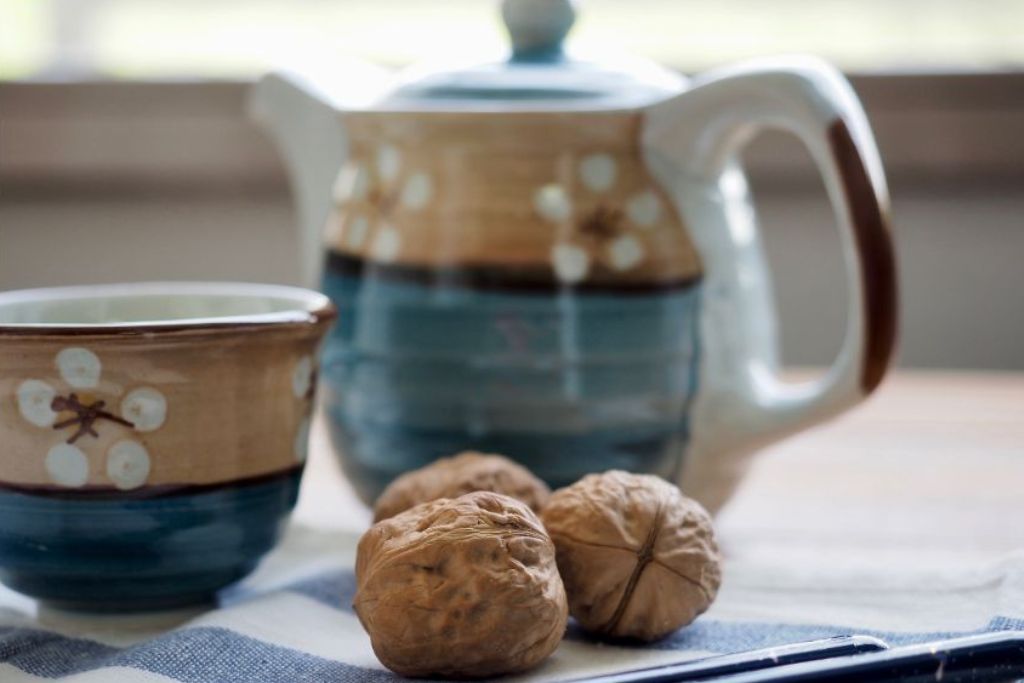
Black walnut tea is not just delightful but also has many health advantages. Discover 9 health benefits that make black walnut tea a great complement to your daily routine.
Anti-Inflammatory Properties
Revel in the tea’s innate ability to combat inflammation, providing relief and promoting overall well-being. Each sip becomes a soothing remedy, contributing to a balanced and harmonious bodily state.
Antifungal Properties
Harness the antifungal prowess of black walnut tea, safeguarding your body against unwanted fungal intruders. Enjoy the comforting assurance that comes with each cup, knowing it’s actively working to protect your well-being.
Heart Health Booster
Sip your way to a healthier heart, as black walnut tea may contribute to cardiovascular well-being. Embrace the cardiovascular benefits of this delightful infusion as part of your daily wellness routine.
Anticancer Potential
Uncover the potential anticancer properties within each sip, offering a protective shield against cellular abnormalities. Let your tea break become a moment of empowerment, nurturing your body with possible cancer-fighting elements.
May Aid Weight Loss
Aid your weight loss journey by incorporating black walnut tea, a natural supporter in achieving your fitness goals. Elevate your weight management efforts with the added boost of this flavorful and health-conscious beverage.
Better Gut Bacteria
Cultivate a flourishing environment for gut bacteria, enhancing digestion and promoting a balanced microbiome. Experience the digestive benefits that black walnut tea brings, supporting a healthy and resilient gut ecosystem.
Blood Sugar Regulation
Experience the balancing act of black walnut tea on blood sugar levels, contributing to overall metabolic health. Incorporate this natural regulator into your routine for a gentle and practical approach to blood sugar management.
Parasite Expulsion
Harness the tea’s natural ability to expel parasites, supporting your body’s defense against unwanted invaders. Let black walnut tea be your ally in maintaining a clean and resilient internal environment.
Radiant Skin Elixir
Elevate your skincare routine with black walnut tea, promoting healthy skin from the inside out. Revel in the beauty-enhancing properties of this tea, making self-care a delightful and flavorful experience.
FAQs
What are the Side Effects of Black Walnut Tea?
Side effects of black walnut tea may include nausea, upset stomach, and diarrhea. Some individuals may also experience allergic reactions. It’s advisable to start with small amounts to assess tolerance.
Who Should Not Drink Black Walnut?
Pregnant or breastfeeding women and individuals with nut allergies should avoid black walnuts. People taking certain medications or with liver conditions should consult a doctor before using black walnut supplements.
Is Black Walnut Safe for the Liver?
A limited study suggests black walnut may be hepatoprotective, although its safety for liver patients is unknown. Consultation with a healthcare provider is recommended for those with liver concerns.
What is the Best Use of Black Walnuts?
Use black walnuts in cooking, baking, or as a supplement. Antioxidants and omega-3s are abundant. However, moderation is key due to their strong flavor and potential side effects.
Does Black Walnut Help You Sleep?
There is no substantial evidence supporting the claim that black walnuts help with sleep. While it contains some compounds that may promote relaxation, its efficacy for rest is not well-established. Individuals seeking sleep aid should explore proven methods and consult a healthcare professional if needed.

